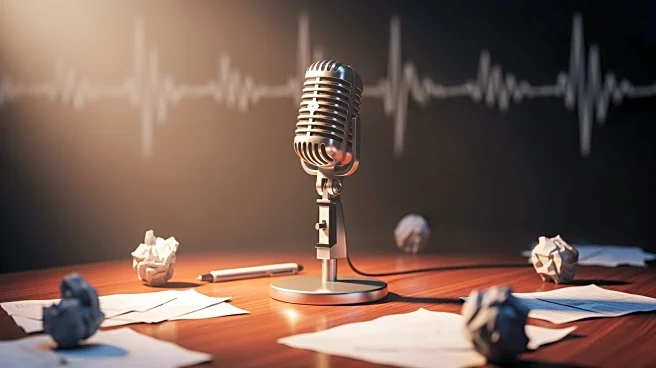What's Happening?
The BBC has issued a public and personal apology to President Trump following the broadcast of an edited version of his January 6, 2021, speech on its Panorama program. The edited segment reportedly gave
the impression that Trump had directly called for violent action. The BBC acknowledged the error and stated that the episode would not be aired again. The controversy has led to significant repercussions within the organization, including the resignations of BBC director-general Tim Davie and BBC News CEO Deborah Turness. Despite the apology, President Trump has threatened to sue the BBC for $1 billion in damages, although the broadcaster has rejected his demands for compensation.
Why It's Important?
This incident highlights the challenges media organizations face in maintaining editorial integrity and the potential consequences of misrepresentation. The BBC's apology underscores the importance of accurate reporting, especially in politically sensitive contexts. The resignations of high-level executives reflect the gravity of the situation and the pressure on media outlets to uphold journalistic standards. The potential lawsuit from President Trump could have financial and reputational implications for the BBC, influencing how media organizations handle similar situations in the future.
Beyond the Headlines
The controversy raises broader questions about media accountability and the role of public broadcasters in political discourse. It also highlights the delicate balance between editorial freedom and responsibility, particularly in the context of politically charged content. The incident may prompt discussions about the ethical obligations of media organizations and the impact of their reporting on public perception and political narratives.










